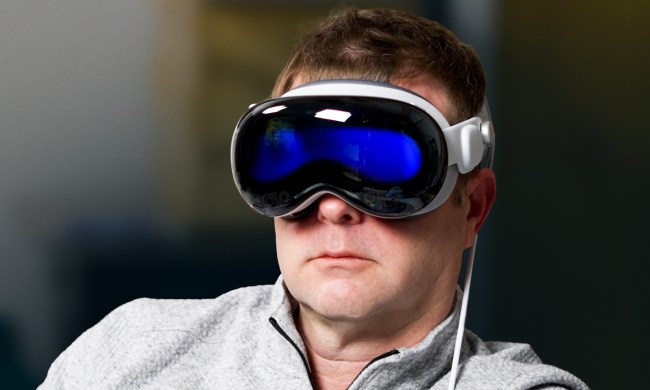Apple is known for the strong ecosystem that lets all its devices work pretty seamlessly together. A new patent suggests the company’s upcoming Reality Pro headset will be a full-fledged member of this ecosystem — and get one of Apple’s best features in the process.
According to the patent, Apple might bring its Continuity system to its upcoming mixed-reality headset. That means you’ll be able to send work from one device to another with just your eyes, all through the power of the headset’s augmented reality tech.

The best part of this idea is that it will be almost entirely seamless. Right now, using Continuity on your Mac or iPhone requires you to take a few steps to transfer a file to another device. Things will work a little differently with the Reality Pro headset.
In the patent, Apple explains that all you’ll need to do is move your gaze or gesture from one device to a new one. For instance, you could edit a document on your Mac’s display while wearing the headset. You could then gesture towards another Apple device, such as an iPhone or iPad, and the document would follow, letting you edit it away from your Mac.
As well as moving files between your Apple devices, you could also simply shift whatever it is you’re working on into the headset’s view, allowing it to float in a sort of virtual workstation. In that instance, you might be able to type in midair using a virtual keyboard, or you could perhaps use a physical keyboard while the content is still shown on the virtual display.
Expanding the Continuity family

Apple’s patent outlines other use cases for its Continuity idea. One of them explains how a song that is playing on an iPhone could be made to play out of a smart speaker instead simply by looking at the speaker or gesturing towards it.
That sounds like a pretty smooth system and suggests the kind of ease of use Apple products are known for. The company is well-regarded for the simplicity with which its devices communicate and work with each other, and it looks like we get more of that in Apple’s forthcoming mixed-reality headset.
The device is expected to launch at Apple’s Worldwide Developers Conference (WWDC) in June. If this patent’s ideas make it into the finished product, the Reality Pro headset could be pretty compelling when it is revealed to the world.



